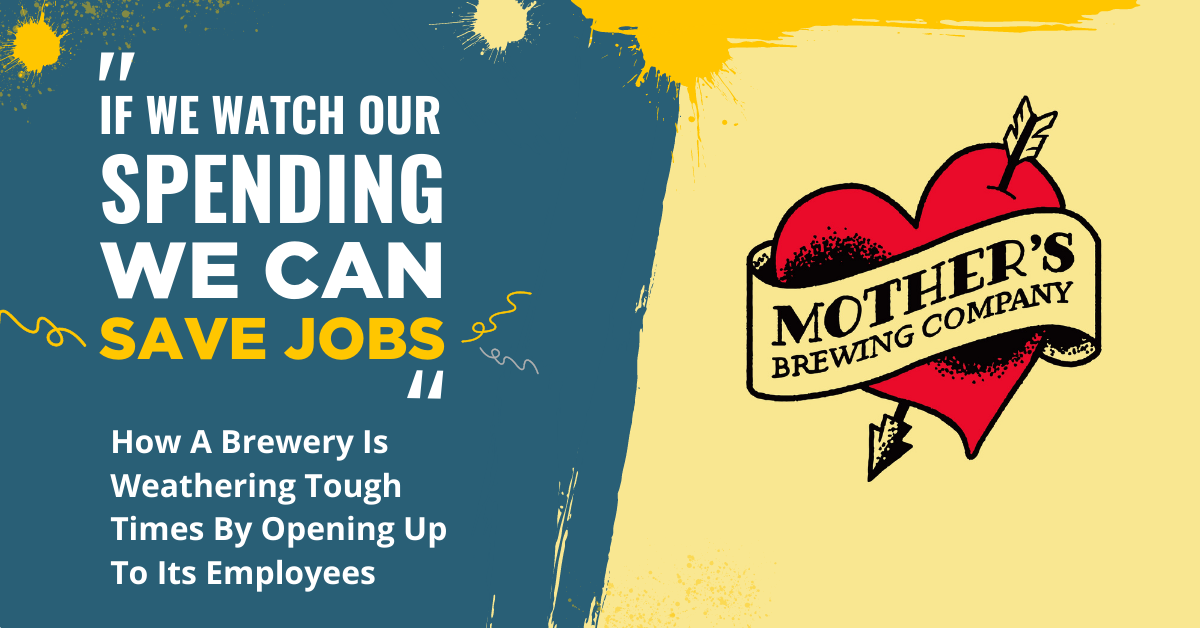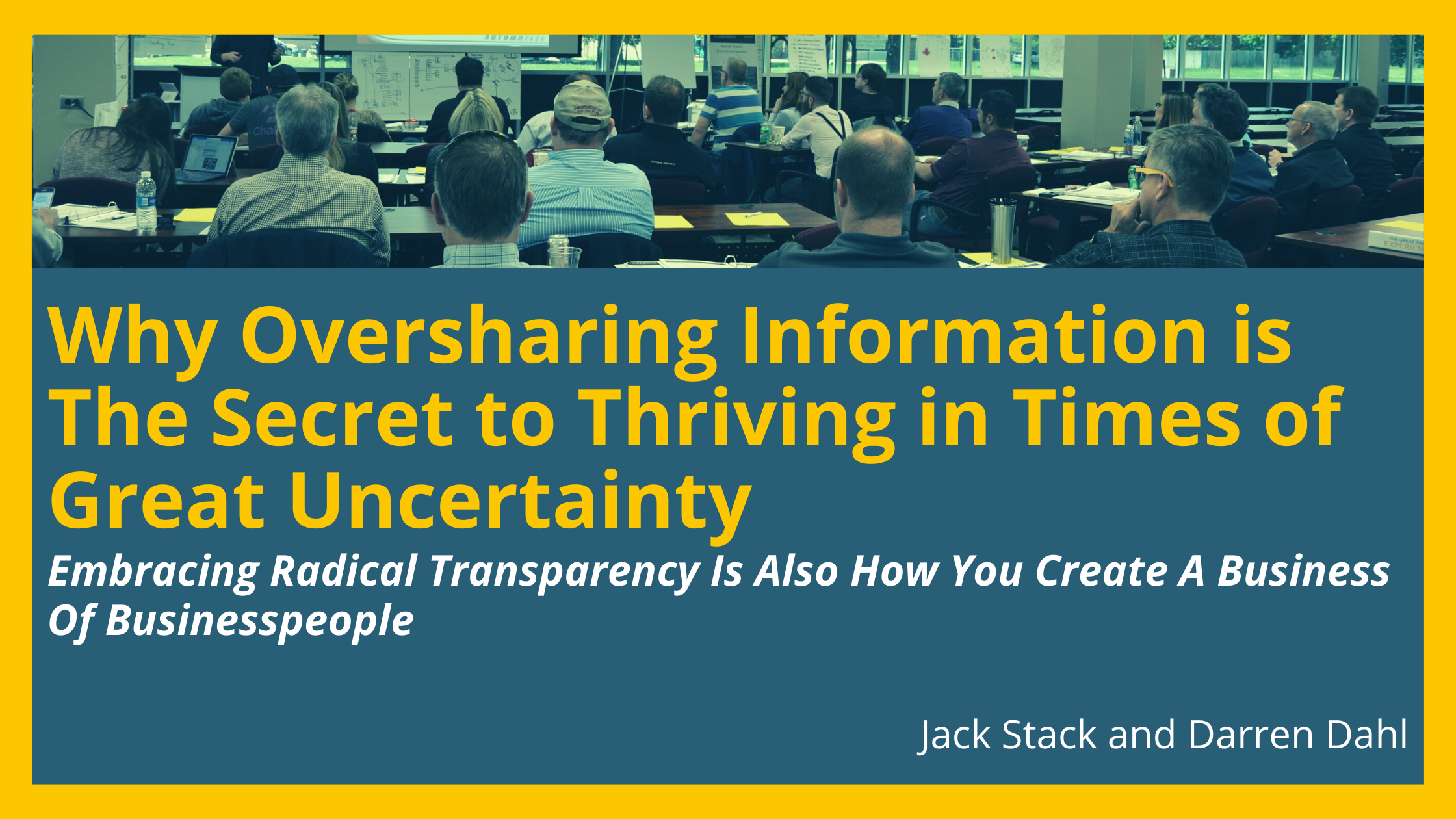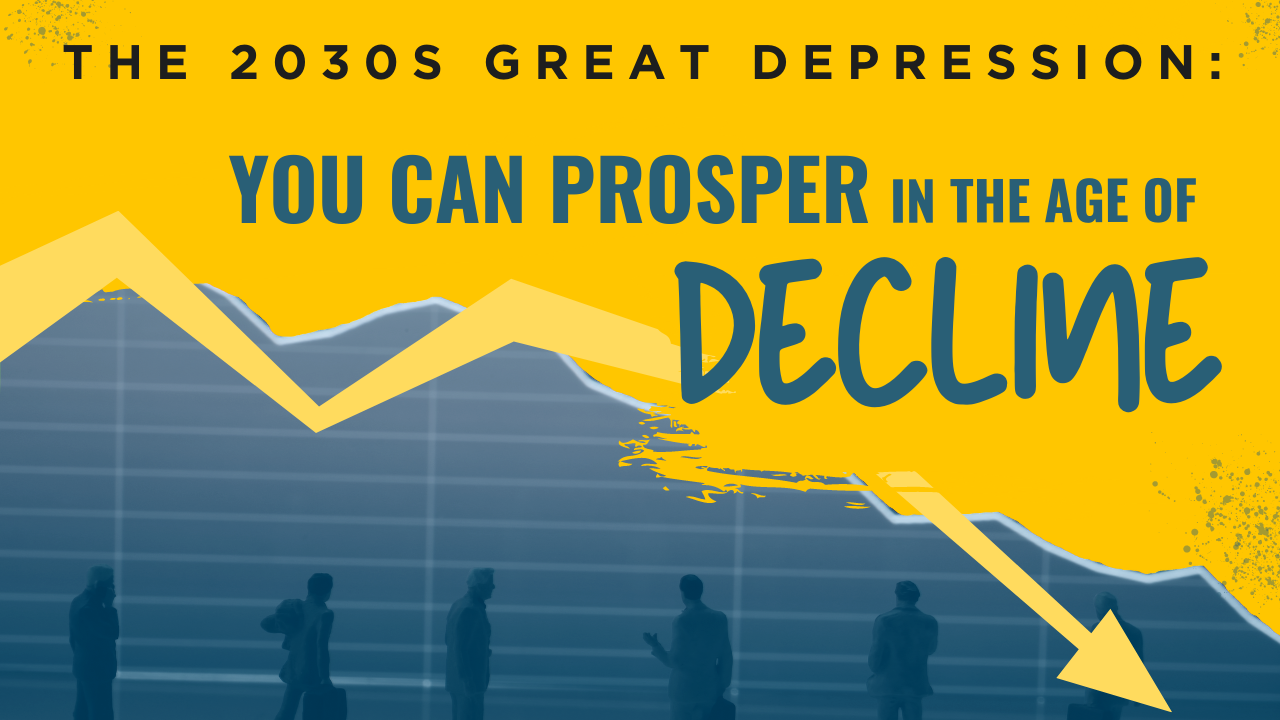We asked the President of The Great Game of Business, Darin Bridges if he thinks business owners should be raising their prices right now. His response, "hell, yes." Protecting Margins Now, So You Can Fund Growth Tomorrow We've always had a saying at SRC. When the economy goes down — it's not the time to be asking for price increases. You've got to do it while the economy is going up. Everybody knows costs are going up right now — they're creeping up everywhere. We've heard the horror stories of the price of lumber, and surcharges keep emerging. It can be a scary thing, but within an inflationary environment, price increases are regular, and they're a crucial part of protecting margins. So how do you protect margins? This is where the whole idea of engaging your employees in the business and the finances comes together. Educating employees on how they make an impact and getting them to take ownership in what they do is so important. When they're aware of inflation and how that impacts the company, they're able to monitor expenses in their area of the business to help stay on top of costs. One man, one owner, one business leader can't do it all. You have to get your people to constantly and proactively find ways to reduce costs. Getting your costs under control and then going for the price increase will help maintain margins. You've got to be able to protect your margins to continue to fund growth, fund your people, fund the retention, and all the things necessary to see success for your business.
Read More
It's been two years since Covid shut the economy down. And nothing has been the same since. What's crazy is how things continue to change on what seems like a daily basis. Variances are the name of the game. We were already dealing with supply chain delays and the constant upward pressure of inflation caused by the shortages of parts and people in the marketplace. The price of freight is skyrocketing—and that was all before the war in Ukraine erupted. Suddenly, we need to add in the additional upward pressure on the price of oil and commodities like wheat—did you know Russia is the world's largest producer of wheat and Ukraine is fifth? There are also precious metals like nickel, which is a big Russian export. Nickel is used to make everything from stainless steel to appliances and batteries, which are rising in price because of the shortages. Now mix in the fact that interest rates will be rising for the first time since 2018, and every business is faced with solving a dynamic puzzle with lots of moving pieces.
Read More
When many business owners and executives hear the words "Strategic Planning," their minds jump to another topic. Any other subject will do. In their hearts, they know that planning is important to the organization. But knowing where to start is the issue. They have heard the stories from their peers who created a plan, and it sat on the shelf for a year or forever. As a result, planning happened once and then stopped. It amounted to a waste of time and money. The question then becomes: why bother planning at all?
Read More
There was so much promise for the post-pandemic economy—especially for the manufacturing sector. Many organizations continue to see an unprecedented surge in demand for their products—levels the economy hasn’t seen for 40 years. For many, it’s been a struggle to keep up with customer orders. It’s like trying to drink out of a fire hydrant to keep up with this kind of growth. The forecasts continue to look strong, too, as retailers and dealers increasingly look to insource and onshore production from overseas. The future of manufacturing in the U.S. looks brighter than it has in decades. Yet, there’s a catch. Manufacturers now have emerging pain points to contend with. Supply chains are stretched to their limits. Ships lay docked outside ports while there aren’t enough trucks or drivers to cart products away. Millions of dollars of finished goods may sit in warehouses for months awaiting parts worth mere dollars.
Read More
There's something special about the Midwestern town of Springfield, Missouri. It just seems to breed entrepreneurs. It's been the launching pad for household names like Bass Pro Shops and O'Reilly Auto Parts, among others that help power the nation's economy. Maybe there's something in the water. Or perhaps it's tied to the can-do attitude of generations of farmers raised in the area. While Jeff Schrag wasn't born in Springfield—he moved there in 1995 after he bought a newspaper based there, The Daily Events, a legal notice publication—he's what you might call a "serial entrepreneur." Among his many ventures, he has started a business that sells cufflinks, one that offers coloring books, and he's also rehabbed and flipped real estate.
Read More
You never thought you’d be here–navigating your business through a global pandemic that has changed nearly everything about the way we work. You’ve learned to cope with the quarantines, the safety protocols and the financial uncertainty. Still, now you’re facing one more potential pivot: the switch to a hybrid or fully remote workforce. You’re thinking: What happens when my employees are no longer together as a team? Will they lose motivation? Will communication break down? Will our bottom line suffer? Maybe you’re already experiencing some of these issues–but it doesn’t have to be this way. The core principles of the Great Game of Business®–educating and empowering employees to think and act like owners, and engaging them by giving them a Stake in the Outcome®—can help eliminate the risk of disengagement that comes with remote work.
Read More
Peter Drucker is credited with saying, "culture eats strategy for breakfast". Even in today’s tech driven economy, a company’s human capital is still the most powerful potential competitive advantage. Great work culture is incredibly hard to build and even harder to maintain. Usually, workplace culture is measured in terms of employee engagement. The cultures I admire most built their employee engagement around these strategies below:
Read More
Things were looking up there for a while, weren’t they? At least the long-term forecasts still look strong. But this omicron variant is causing us to tear our hair out, worrying about the health and safety of our people (let alone our loved ones at home). Just this past week, we saw 82 of our associates call in sick—that’s 5% of our company. Just as bad, something like 8% of our company has tested positive for the virus in January. Then, we got hit with the news that our school system was shutting down for a week or more because of the incredible wave of infections ripping through our community. That means we have parents forced to stay home or find childcare options at the last minute, which just puts enormous stress on everyone.
Read More
You asked and we've answered! In this blog series, our experienced Great Game coaches answer questions directly from the open-book community. What is the best coaching tip you have for companies just starting to practice the Great Game of Business? Be sure the CEO is fully bought in, directly involved, is a main cheerleader, sets the example, and ensures that all involved (especially 100& of the leadership team) are enrolled and on board. Period! Create a solid communication and business literacy training process via a weekly Huddle rhythm.
Read More
Start By Dispelling Three Common Management Myths: Lessons From The Great Game of Business People are quitting jobs at a rate like we’ve never seen before. In what’s become known as “The Great Quit” or “The Great Resignation,” millions of workers are leaving their jobs every month. When you combine that with the flood of retiring Baby Boomers, we’re witnessing a seismic reshuffling of the work force. Even Santa Claus is in short supply. What’s even more stunning is that this might be just the beginning. Research from Microsoft and Gallup finds that some 41% of the global workforce, and nearly 50% of employees in the U.S., are actively looking for a new job. As many (if not most) employers now scramble to keep their existing people—let alone recruit new employees—it’s created a new emphasis on answering the question: Why are so many workers quitting?
Read More

.png)



.png)
.png)














.png)

